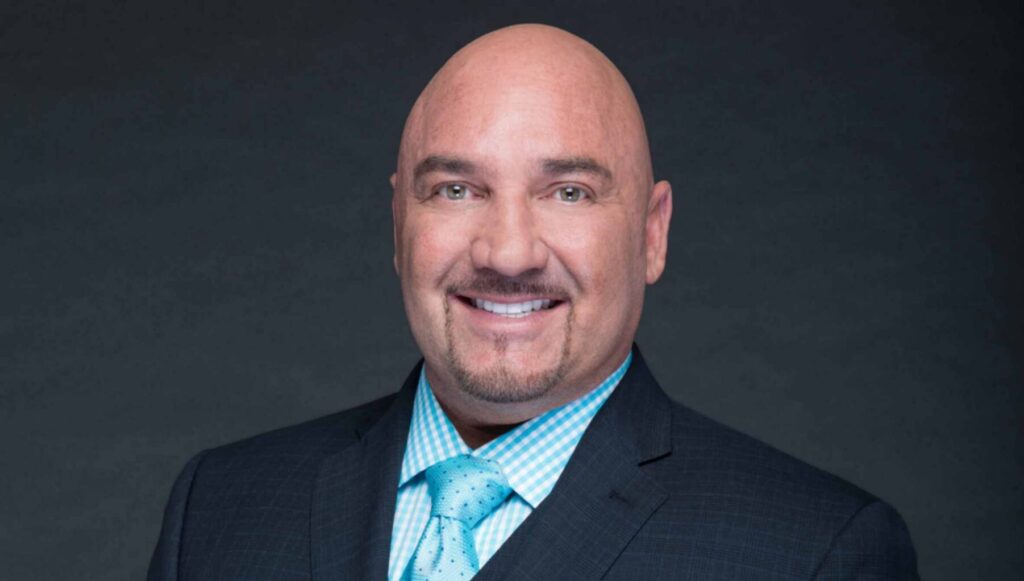

By Cathy Cassata
For nearly 20 years, Jay Glazer has been a National Football League insider for Fox Sports’ NFL pregame show. His short, fast-paced segment is packed with NFL exclusives, late-breaking news, injury updates and more.
While millions of football fans watch him on screen every Sunday, many may not know that Glazer lives with ADHD. In fact, he says, in some ways, the condition helps him excel at his job.
“Without ADHD, I wouldn’t be able to do as many things as I do at the same time,” Glazer says. “Being an NFL insider, I’m used to having two phones going at the same time — I’m putting this guy on hold, taking this call, talking to people at the same time. It’s become my superpower.”
His superpower involves juggling multiple endeavors, including owning the Unbreakable Performance Center gym in West Hollywood, Calif., and training people and athletes in mixed martial arts. He also runs the non-profit organization MVP (Merging Vets & Players), which connects combat veterans with former professional athletes to help them transition into lives away from the battlefield and playing field.
Still, managing ADHD while he engages in multiple undertakings is a constant work in progress, Glazer says.
For instance, when on TV, he intentionally tries to slow down his brain to stay on task.
“Sometimes I’m on the first thing I’m saying, (then) boom, my mind is moving onto the third thing I’m saying,” he says. “I’ve just had to learn how to deal with that and there’s ways that when I’m on TV, I know how to bring it back, but I get a little nervous sometimes when I realize … my brain is on the next segment while I’m still talking to America live about the current segment.”
Glazer Has Come a Long Way Since His Diagnosis
After getting kicked out of freshman year at Princeton University for a low grade point average, Glazer was diagnosed with ADHD in 1989.
“School was always difficult for me,” he says. “I could learn very well in a certain way — in short spurts. Now knowing what I know about my ADHD, I wish I knew it a lot earlier in my life.”
Dr. Maria Roccisano, director of psychiatry at Northwell Lenox Hill Hospital in Manhattan, New York, says stigma and lack of awareness keeps many children and adults from receiving diagnosis for psychiatric conditions.
“This leads to delayed diagnosis and treatment and can have negative effects on life success and functioning,” she says.
Once Glazer knew about his ADHD, he advocated for himself. He recalls explaining to teachers why he needed to step out of the room and take a breath.
“Teachers kind of looked at me like I was Ferris Bueller, like I was just trying to get away with something,” he says. “They didn’t believe me. But I was educating teachers back then.”
Today, he brings awareness to the fact that about two-thirds of people with ADHD have co-occurring conditions. Glazer lives with depression and anxiety.
“I’ve always known that I was different cause I had this sad grey in me as a little kid and it was always there,” he says. “It also gave me a bigger personality as a mask and that personality works for television.”
In 2005, he began experiencing panic attacks weekly — but he thought he was experiencing a heart condition. It wasn’t until years later when he heard sports broadcaster Terry Bradshaw on Fox NFL Sunday describing an anxiety attack that he connected the dots.
“That’s also when I realized, man, if he could open my eyes by describing it, I could be of service to a lot of people by describing what I have as well,” Glazer says.
Speaking Out for Others, Especially Men
In 2022, Glazer published the book “Unbreakable: How I Turned My Depression and Anxiety Into Motivation and You Can Too.” Around the same time, he began talking openly about depression, anxiety and ADHD on social media and podcasts.
“What I’m trying to do with all of it is give it words for how it feels … so that we can start talking about it to other people and give it words for ourselves, so we don’t feel like something is wrong with us because nothing is wrong with us,” he says. “There are just certain ways that (we) learn better,” he says.
He also talks to NFL and United States Football League teams about mental health. He believes mental health is reactive while physical health is proactive, and encourages men to get proactive about mental health.
“So I’ll say: ‘You guys wouldn’t catch passes (only) when you have the drops and you wouldn’t just run 40s when you think you’re getting slow, or bench press when you think you’re getting weak,'” he says. “The problem is, we only get professional help from a therapist or psychiatrist when the sky is falling, and that doesn’t make any sense.”
He also encourages men to be vulnerable with each other and that doing so makes them closer teammates. He assures them that because they are “big, bad football players, no one is questioning your manhood, so you are the ones who can open up about it, and they’re kind of like: ‘Oh, yeah, you’re right.'”
Being open about his mental health has brought Glazer closer to people in his life. He tells others that reaching out for help can be a game changer.
“If you think you have (ADHD), call a doctor and get help or just speak to somebody about it, especially if you think there is something wrong with you or that you’re damaged; you’re not damaged,” he says. “It just makes us a little different, but different is good. Different is what leads to success.”
Managing ADHD is Ongoing
For years, Glazer tried different stimulants to manage ADHD symptoms, but he experienced mood swings and depressive episodes.
“Adults living with ADHD may have had negative experiences with stimulants as a child and therefore may be less likely to seek treatment,” says Roccisano. “This could potentially lead to delays in treatment or difficulty coping with their diagnosis.”
When treated properly, she adds, people can experience improved life outcomes in all areas of functioning in adulthood.
Glazer eventually found the non-stimulant Qelbree (generic name viloxazine) to be most effective for him.
“I would have a problem with sleeping because my brain wouldn’t shut off and it would go and go and plot and plan. With the medication (I take) now at night, it helps me focus and I get sleep and then wake up more focused,” he says.
He hasn’t found the best treatment for depression yet, despite trying over 30 anti-depressants.
However, self-care practices help him manage his overall mental health. As soon as he wakes up, he says a prayer with his fiancée, Rosie Tenison. Then, they go outside and practice 10 minutes of breathwork and three minutes of meditation. After that, Glazer writes a gratitude list, which consists of 10 things he is grateful for from the previous day.
“It could be materialist. It could be I’m grateful for God. I’m grateful for my fiancée. I’m grateful for conversation, or this joke I learned,” he says.
Then he exercises for five or 10 minutes before he looks at his phone and starts his day.
Before bedtime, he meditates on good things that happened during the day.
“I smile, appreciate and celebrate. So what I mean by that is I take something (from the day) and I appreciate it,” he says. “In the past, those 15 minutes before I laid my head on my pillow at night used to be my worst part of the day because I laid down with somebody I didn’t know how to love.”
Through all of his self-reflection, self-care and understanding of ADHD, depression and anxiety, Glazer created healthy coping skills and learned to love himself.
“I switch the narrative on my (mental health conditions) because I don’t want to feel damaged. I don’t want to feel like something is quote-unquote wrong with me,” he says. “I look at all of (my mental health conditions) to see where they can inspire me and motivate me to do great things in my life.”
He hopes sharing his story will help others reach for the same.






